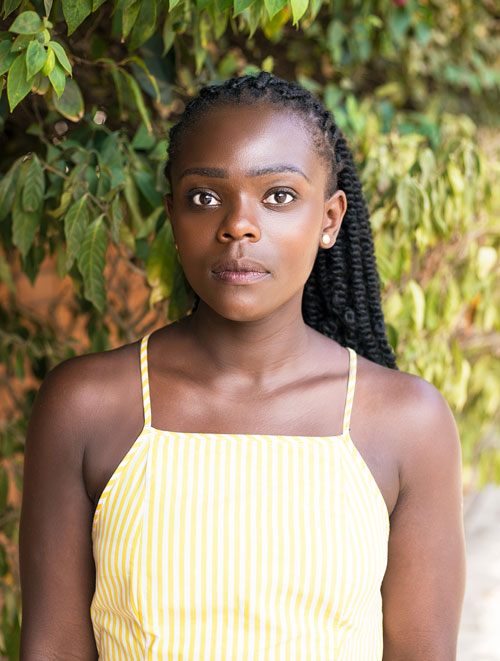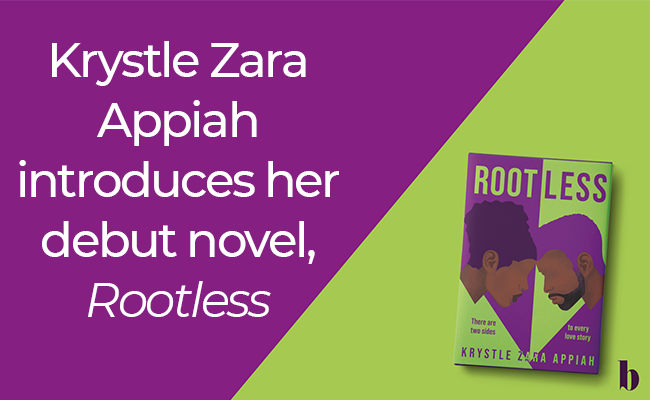‘Eventually, they’ll need to re-discover who they are beneath all the noise’
Krystle Zara Appiah
Four years ago, when I finished the very first draft of Rootless, I was in my mid-twenties, at the start of my career and already being plagued by well-meaning (and not so well-meaning) family members who’d regularly ask “Is there someone you want to introduce me to?”
For those of you who don’t have your Ghanaian-aunty translation apps to hand, their questions were code for “When are you getting married, settling down and having children?”
Even now, the idea of those milestones feels laughable. There are days when I can’t even decide what to eat for dinner let alone who I’d like to spend the rest of my life with. I’m a woefully inadequate plant parent, so the thought of being responsible for a living, breathing human for a minimum of twenty years fills me with debilitating terror.
While I’m sure this isn’t a uniquely Ghanaian-aunty problem, this does point to an assumption – make that an expectation – that your twenties should be about choosing a partner, beginning a family and putting down roots.
Rootless follows a British-Ghanaian couple navigating those same, important life decisions. The novel spans nineteen years as Sam and Efe go from teenage best friends to lovers, then marry and enter into parenthood. Their relationship is littered with missteps and compromises that gradually take them further away from the people they planned to be. After all, they’re as equally defined by their pasts as they are by their present realities. Eventually, they’ll need to re-discover who they are beneath all the noise and try to find a way back to each other.
At its core, it’s asking readers how do you handle familial expectations and find the courage to create the life you want? It’s a novel centred on belonging, home, identity and, most of all, family.

Now in my late twenties, the questions from my family members have only become more incessant. But I know that beneath those coded remarks what they’re really saying is “Life is hard. Is there someone who will care for you when I’m gone?” And to that question, I can answer with an emphatic yes. I hope the same is true of you too.



